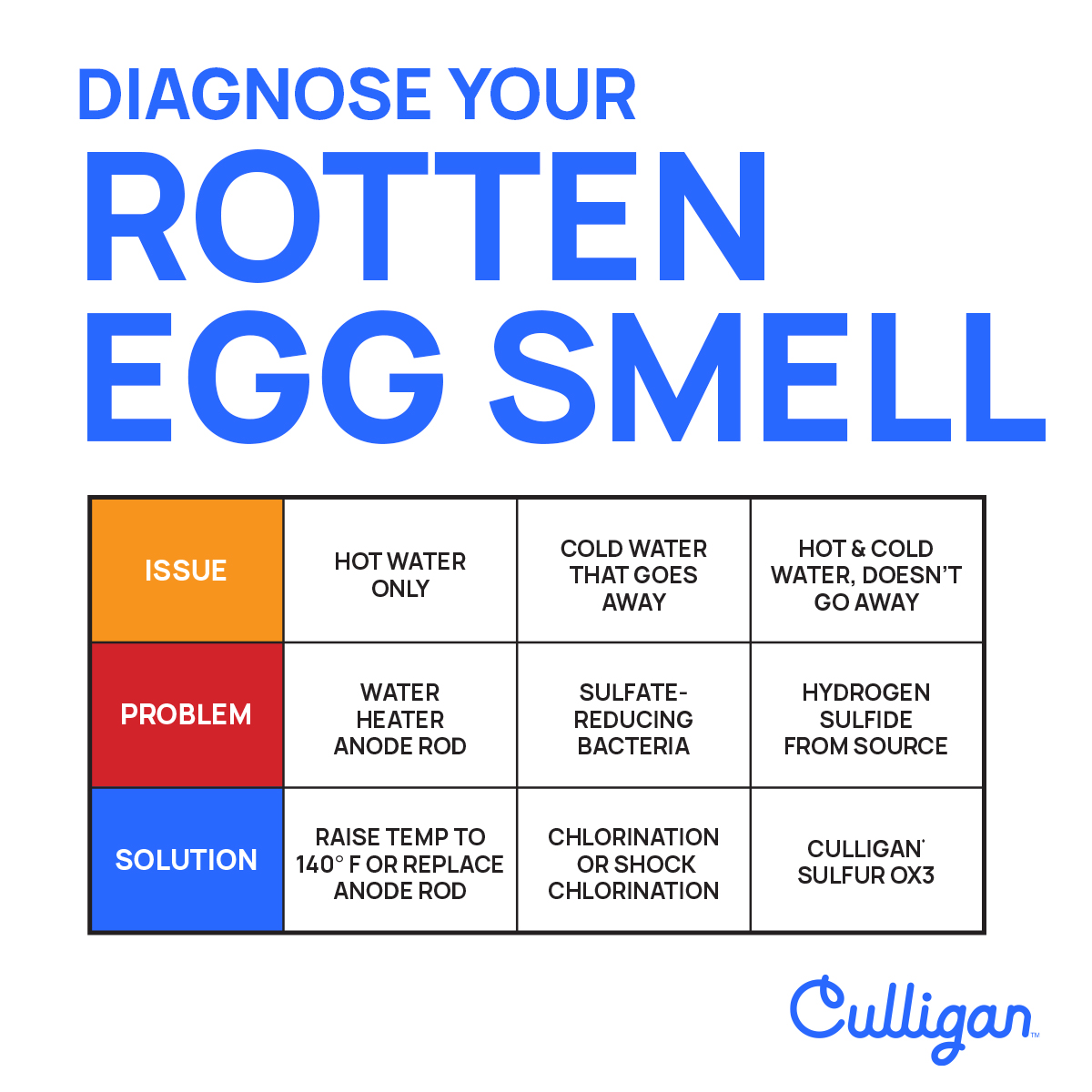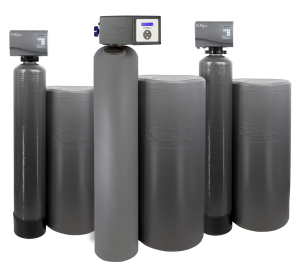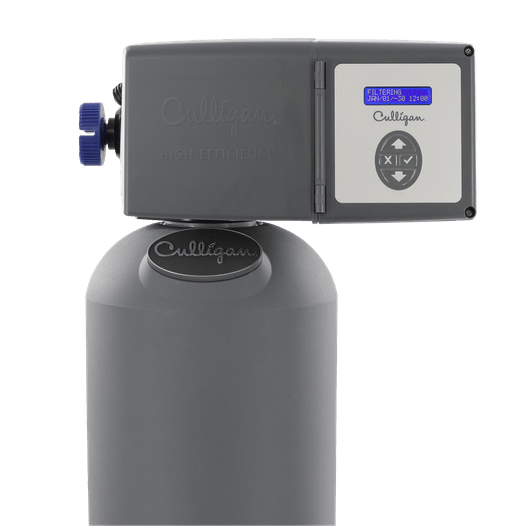Sulfur – What Causes the Rotten Egg Smell in Ontario Tap Water?
If your tap water in Ontario smells like rotten eggs—especially when using hot water—you’re likely dealing with hydrogen sulfide gas, a byproduct of sulfur-reducing bacteria, organic materials, or bacterial growth in your water supply or plumbing. This rotten egg odor can make drinking water unpleasant, raise concerns about water quality, and cause plumbing issues like scale buildup or corrosion. Fortunately, Culligan of Ontario offers advanced water treatment systems that effectively eliminate sulfur odors and restore fresher, cleaner water to your home.

Why Does My Ontario Tap Water Smell Like Rotten Eggs?
Hydrogen sulfide is commonly produced by sulfate-reducing bacteria that thrive in low-oxygen environments, such as aging hot water heaters, underused cold water lines, or drain traps with organic debris. When water flows through your faucet, this gas is released, producing a strong rotten egg smell and other water quality issues.
Common Sources of Sulfur Smell in Ontario Homes
Electric Water Heater & Hot Water Heater Odors
In many hot water heaters, the magnesium anode rod (or magnesium corrosion control rod) can react with naturally occurring sulfur compounds and minerals in soil or groundwater. This reaction produces hydrogen sulfide gas, particularly in homes with hard water—common throughout Ontario and surrounding cities like Upland, Chino, and Rancho Cucamonga.
Municipal Water Systems & Ground Water
Ontario’s water supply is managed by the City of Ontario Municipal Utilities Company and sourced from a mix of local groundwater and imported water via the Metropolitan Water District of Southern California. While this water meets all EPA drinking water quality standards, hydrogen sulfide is considered a secondary contaminant, affecting taste and odor but not health. The smell may still be noticeable in areas where water stagnates in pipes or where the system is influenced by older infrastructure, groundwater seepage, or nearby industrial zones.
Plumbing Systems & Household Items
Bacteria can grow in drain lines, particularly in kitchen or bathroom sinks with built-up material, food scraps, or soap residue. These odor-causing compounds can lead to bad odor, earthy water, or foul-smelling water, especially in homes with older plumbing fixtures.
Where Does the Rotten Egg Smell Come From?
- Natural Occurrence: Sulfur is naturally present in groundwater, especially in regions with mineral-rich soil like western San Bernardino County.
- Community Hazards: Homes near older septic systems, agricultural runoff zones, or former fuel storage sites may experience higher levels of hydrogen sulfide.
- Water Heater Rods: If your home uses a standard water heater, the anode rod may be reacting with sulfur compounds. Replacing it with an FDA-approved corrosion-resistant rod can help reduce odors.
Water Quality Issues from the Presence of Sulfur
Even if it doesn’t pose an immediate health risk, excess sulfur in your water can cause a variety of issues:
- Corrosion to plumbing and damage to metal fixtures
- Staining or discoloration of coffee, tea, or cooked foods
- Mineral buildup or scale on water-using appliances
- Persistent sulfur odors in laundry, dishwashing, and shower water
- Dry or irritated skin from bathing in sulfurous water
Health Considerations from Hydrogen Sulfide Exposure
While low levels of hydrogen sulfide gas are not typically harmful, it’s still important to consider the potential health implications, particularly for:
- Infants, seniors, and individuals with respiratory sensitivities
- Those exposed to low water pressure, chloramine-treated water, or biofilm bacteria water
- Anyone experiencing chronic exposure to poorly treated groundwater
Symptoms of prolonged exposure or high concentrations may include:
- Headaches, fatigue, or nausea
- Eye, nose, or throat irritation
- Long-term health risks tied to exposure to contaminated water
How to Diagnose Rotten Egg Odor in Your Ontario Home
- Run both cold and hot water—if only the hot smells, your hot water heater is likely the culprit.
- Pour a cup of bleach or cup of vinegar down your drains and let it sit before flushing to reduce bacterial buildup.
- Use a drain brush to clean out food particles and organic material from your pipes.
- If the odor is present in all rooms or faucets, the issue may stem from your water source or filtration system.
Water Testing & Analysis in Ontario
Culligan of Ontario offers independent laboratory testing, in-home water analysis, and lab testing kits to evaluate sulfur levels, chlorine content, and overall water quality. Using Water Quality Reports from Ontario’s utilities and recommendations from your local water provider, our team designs personalized solutions to address your home’s specific water conditions.
Effective Solutions for Rotten Egg Smell in Tap Water
Whether you’re dealing with smelly water, unpleasant odors, or discoloration in your glass of water, Culligan offers targeted solutions for homes across the Inland Empire:
- Water softeners using ion exchange
- Carbon filtration systems and chlorinator-activated carbon filters
- Hydrogen peroxide and hydrogen oxide chemical feed systems
- Reverse osmosis systems for improved drinking water taste and safer water
We also offer -Cleer Plus Technology and Portable Exchange Tank Service for comprehensive, low-maintenance odor removal and filtration.
Proactive Tips to Prevent Rotten Egg Odors
- Flush your hot water heater at least once a year with white vinegar
- Check and adjust salt levels in your softener system
- Replace anode rods if you notice black sediment or a recurring musty odor
- Avoid harsh chemical-based drain cleaners; opt for natural solutions and regular cleaning
- Schedule annual system checks with Culligan of Ontario
Serving Ontario and the Greater Inland Empire
Culligan of Ontario is proud to serve customers throughout western San Bernardino County, including Montclair, Pomona, Chino Hills, and Fontana. Whether you’re located in a residential neighborhood or a rural property with well water, we provide affordable, effective water solutions tailored to your needs.
Schedule Your Free Water Test Today
Don’t let rotten egg smell or foul water odors affect your quality of life. Contact Culligan of Ontario today to schedule your free comprehensive water test. Our experts will identify the source of the odor and recommend long-term solutions to ensure cleaner, better-tasting water at every tap in your home.
Solutions
Suggested Products

Aquasential™ Smart High Efficiency Water Softener
- Smart brine tank auto-monitors salt levels
- Convenient auto-bypass valve
- Reliable non-corrosive valve
- Worry-free maintenance

Aquasential™ Smart High Efficiency Whole House Water Filters
Reduce sediments in your water and contaminants that cause your water to appear, taste, and smell unpleasant. Your system can also lessen the taste and odor of chlorine, and prevent pipe damage and staining from low pH water. Additional customizations include:
- Culligan® Filtr-Cleer® Water Filters – Reduces Sediment Problems
- Culligan® Cullar® Water Filters – Reduces Taste and Odor Problems
- Culligan® Cullneu Water Filters – Reduces Acid Problems

Facebook